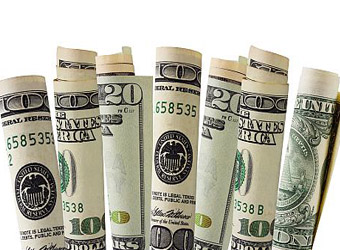The dollar extended its latest retreat in Asia on Wednesday after a key advocate for free trade in the White House announced his resignation, fanning fears President Donald Trump would go ahead with tariffs and risk a trade war.
The dollar quickly dropped to 105.67 yen, from around 106.10, after the White House said economic adviser Gary Cohn was leaving.
Cohn is a former Wall Street banker who became a bulwark against protectionist forces within the Trump administration and dealers feared his leaving would embolden the tariff hawks.
“The worst outcome for financial markets, in terms of potential to create volatility, would be a confirmation of rising trade friction and benign neglect of the dollar in the short term,” said analysts at ANZ.
Investors suspect protectionist forces in the White House favor using a lower dollar to enhance U.S. export competitiveness while making imports more expensive.
The dollar index lost 0.67 percent against a group of currencies to 89.480, the lowest in two weeks.
The euro popped up to $1.2421, again the highest in two weeks, having gained around a cent overnight.
Traders said there were whispers the European Central Bank might drop its easing bias at a policy meeting this week, though President Mario Draghi has shown little public urgency to do so recently.
The dollar had already been under pressure after South Korea said it would hold its first summit with the North in more than a decade, reducing geopolitical tensions.
It also said North Korea is willing to hold talks with the United States on denuclearization and will suspend nuclear tests while those talks are underway. President Trump said North Korea seemed “sincere” in its apparent willingness to suspend nuclear tests while it held talks with U.S. officials.
The news boosted risk appetite and lifted currencies such as the Australian and New Zealand dollar, although both were then hindered by the revival of trade fears.

